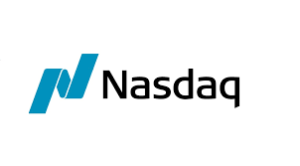Autonomous technology isn’t just for cars; it’s making waves in the shipping industry as well. The market for autonomous navigation, where ships use AI to steer themselves, is expected to grow from $4.46 billion in 2023 to $5.33 billion in 2024. This technology promises significant fuel and time savings.
Orca AI, a London-based startup, claims to have powered the first autonomous commercial ship voyage in congested waters. The company recently raised $23 million in fresh funding, led by OCV Partners and MizMaa Ventures. This latest funding round, which falls between a Series A and B, brings Orca AI’s total funding to nearly $40 million.
Company Background and Expansion Plans
Founded in late 2018 by Israeli naval technology experts Yarden Gross and Dor Raviv, Orca AI launched its AI navigation technology commercially in 2021, coinciding with a $13 million Series A round. The new funds will be used for scaling operations, specifically expanding the engineering team, and developing new products using data from its clients.
Orca AI’s platform integrates multiple sources of visual information to navigate ships, allowing the crew to focus on other critical tasks such as monitoring for drone attacks and piracy. In a 2023 trial, Orca AI’s system reportedly reduced “close encounters in open waters” by 33% and “crossing events” by 40% over 15 million nautical miles. According to the European Maritime Safety Agency, there were over 2,500 significant marine incidents in 2022, highlighting the need for such technology.
Economic and Environmental Benefits
The company claims its technology can also save $100,000 to $300,000 in fuel costs per vessel annually by reducing fuel consumption by 3-5%. Additionally, Orca AI states that its system helped reduce CO2 emissions by 72,716 tonnes across 1,000 vessels last year. The shipping industry, under pressure to lower its carbon footprint, presents opportunities for entrepreneurs to digitize and enhance efficiency using AI.
In an interview, CEO Yarden Gross discussed the future of autonomous shipping, predicting that ocean-going vessels will eventually sail without any crew. In the meantime, Orca AI’s platform aims to optimize various aspects of the voyage, reduce workloads, and enhance safety. The platform uploads all data to the cloud, providing fleet managers with monitoring tools and capabilities to manage an entire fleet semi-autonomously.
Hemi Zucker, managing partner at OCV, highlighted the importance of maritime transport, which handles over 80% of the volume of international trade in goods. He emphasized the significant opportunity in the autonomous shipping sector, noting the progress seen in other transportation modes like planes, trains, and automobiles.
Collaborations and Competitors
Orca AI collaborates with major global shipping companies such as MSC, NYK, Maersk, and Seaspan. Other companies working on autonomous navigation at sea include Avikus, a subsidiary of Hyundai HD, and Sea Machines.
Orca AI’s advancements in autonomous shipping technology however promise to revolutionize the industry, improving safety, efficiency, and environmental sustainability.
See also: FCC Proposes Mandatory Disclosure Of AI-Generated Content In Political Ads


















